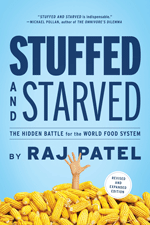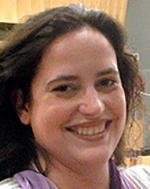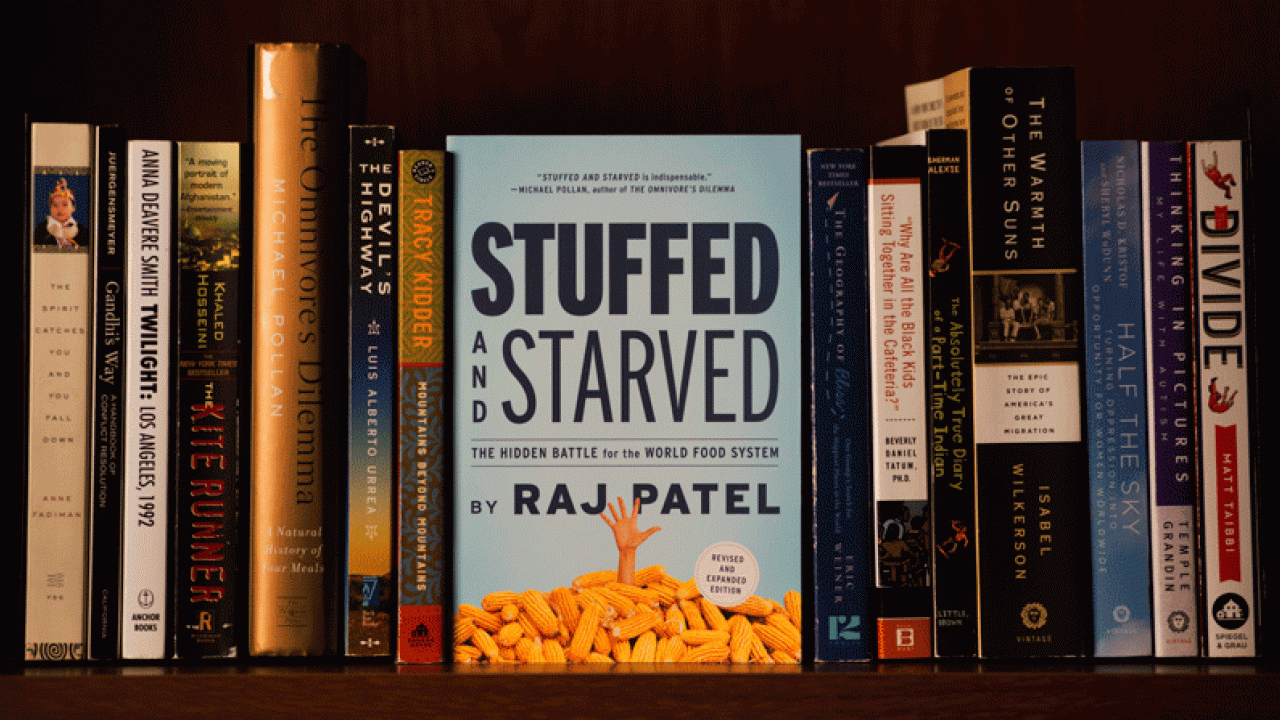Quick Summary
- Raj Patel addresses 'The Hidden Battle for the World Food System'
- Lectures, panels and more will start in the fall, and faculty members are encouraged to incorporate the book into their curricula
- Selection bodes well for 'a rich and multidisciplinary program'
The Campus Community Book Project, 15th edition, starting in the fall, brings us Stuffed and Starved: The Hidden Battle for the World Food System.
“From seed to store to plate, Stuffed and Starved explains the steps to regain control of the global food economy, stop the exploitation of farmers and consumers, and rebalance global sustenance,” said the author, Raj Patel, self-described writer, activist and academic.
Planning Committee
Now that the selection committee has done its work, a program planning committee takes over. Mikael Villalobos, book project coordinator, said he will convene the planning committee in late May to begin identifying faculty and other organizations as potential participants. Volunteers from the campus community and the greater community are welcome to join the planning committee. If you’re interested, send an email to Villalobos.
See below for essays by two selection committee members, talking about Stuffed and Starved.
Mikael Villalobos, book project coordinator for the Office of Campus Community Relations, said: “Patel’s book lends itself to appeal across many disciplines. As with previous selections, the selection committee was excited about the potential for a rich and multidisciplinary program.”
The book project, begun in 2002 in the aftermath of the 9/11 terrorist attacks, aims to get people talking — students, faculty and staff, and members of the greater community — about a book that many people are reading at the same time, and to acknowledge that not all of our opinions will be the same, and yet we can still be respectful of one another. See a list of all the books.
The book selection process for 2016-17 began last summer with a call for nominations on the topic “poverty/hunger/food security” (the topic changes from year to year). A selection committee read the nominated books and submitted a ranked list of finalists, leaving the choice up to Ralph J. Hexter, provost and executive vice chancellor; Rahim Reed, associate executive vice chancellor, Campus Community Relations; and Don Roth, executive director, Mondavi Center for the Performing Arts.
Now, with the selection having been made, book project organizers will assemble a program of lectures and other events, including panel discussions and films, while also encouraging faculty members to incorporate the selected book into their curricula. All this leads up to the author’s visit to campus for a forum and evening lecture. Patel’s visit is scheduled for Monday, March 13, at the Mondavi Center for the Performing Arts.

Patel has degrees from the University of Oxford, the London School of Economics and Cornell University, and he has worked for the World Bank and World Trade Organization (and protested against both). He is a research professor at the Lyndon B. Johnson School of Public Affairs at the University of Texas, Austin, and a senior research associate in humanities at Rhodes University, South Africa.
He published Stuffed and Starved, his first book, in 2009, and revised and expanded it in 2012. In the interim he published The Value of Nothing: How to Reshape Market Society and Redefine Democracy (2010), which made The New York Times’ best-seller list.
Making sense of the world food crisis
The Book
 Stuffed and Starved is in stock at UC Davis Stores. In paperback, the book is selling for the discounted price of $13.97 — that’s 30 percent off retail.
Stuffed and Starved is in stock at UC Davis Stores. In paperback, the book is selling for the discounted price of $13.97 — that’s 30 percent off retail.
Patel's website describes Stuffed and Starved as follows: “Half the world is malnourished, the other half obese — both symptoms of the corporate food monopoly. To show how a few powerful distributors control the health of the entire world, Raj Patel conducts a global investigation, traveling from the ‘green deserts’ of Brazil and protester-packed streets of South Korea to bankrupt Ugandan coffee farms and barren fields of India.
“What he uncovers is shocking — the real reasons for famine in Asia and Africa, an epidemic of farmer suicides, and the false choices and conveniences in supermarkets. Yet he also finds hope — in international resistance movements working to create a more democratic, sustainable, and joyful food system.”
Patel has been a visiting scholar at UC Berkeley’s Center for African Studies, and co-taught Berkeley’s “Edible Education 101” class with journalism professor Michael Pollan in 2014.
Pollan, who wrote the 2006-07 Campus Community Book Project, The Omnivore’s Dilemma, has this to say about Patel’s Stuffed and Starved: “For anyone attempting to make sense of the world food crisis, or understand the links between U.S. farm policy and the ability of the world's poor to feed themselves, Stuffed and Starved is indispensable.”
Here’s how two selection committee members describe the choice:
Karma Waltonen

Raj Patel is a fantastic writer and an amazing speaker (several years ago, the University Writing Program had him here as part of our Conversations with Writers series). I’ve used Stuffed and Starved in my “Writing in International Relations” course, so I know it works in the classroom. His writing is passionate, thoughtful and often bitingly funny. He also manages to teach me so much — for example, I now know how we can pay exorbitant prices for coffee, while the farmers who cultivate it are starving. Stuffed and Starved shows us how food works in our world on both the micro and macro levels and suggests steps we can take to make our system better. Since his book discusses so many aspects of food politics, it will also enable us to create a program with great variety, including panels that debate his analysis.
Karma Waltonen is a lecturer in the University Writing Program.
Nicki King

Stuffed and Starved by Raj Patel is a good choice for opening a conversation about food security and hunger, both in the US and the world. On the surface, it appears that there is little hunger in the United States. This is partly because the least expensive and most accessible foods readily available to low-income people are high in empty calories and fats. They often contain an excess of calories while providing few nutrients: little protein, no healthy fats, and no vitamins to speak of. So, the visual for many poorly nourished people in this country is one of obesity, which makes many people think of the United States as a land of plenty, when in fact many, if not most low-income people who appear “well-fed” are in fact starving for the nutrients their bodies need for health.
Patel’s book describes how poorly the corporate food system in the United States serves the population at large, and how this same food system is delivering poor health in colossal portions to the developing world as well. It is a system that encourages farmers in the developing world to grow large-scale crops for their potential use as energy or animal feed, while discouraging them from growing food crops that could sustain their families or the local economy. Inevitably, they seldom make enough money from these energy or animal feed crops to survive, which means that hunger and malnutrition in these countries becomes a vicious cycle the individual finds it almost impossible to break away from. These populations do not get enough calories to be adequately nourished and their diets often lack critical nutrients, such as proteins, vitamins and minerals, needed for health, growth and development.
Patel argues that the way to turn this situation around is through reform: of our tastes, habits, and attitudes toward food and the food system at the individual level; of corporate and national economic policies that encourage exports before the basic food needs of the populace have been met; and of a global food system that provides cheap calories in abundance to the northern hemisphere at the cost of starving many of those in the southern hemisphere.
Nicki King is a Cooperative Extension specialist emerita in the Department of Human Development.
Media Resources
Dateline Staff, News and Media Relations, 530-752-6556, dateline@ucdavis.edu
